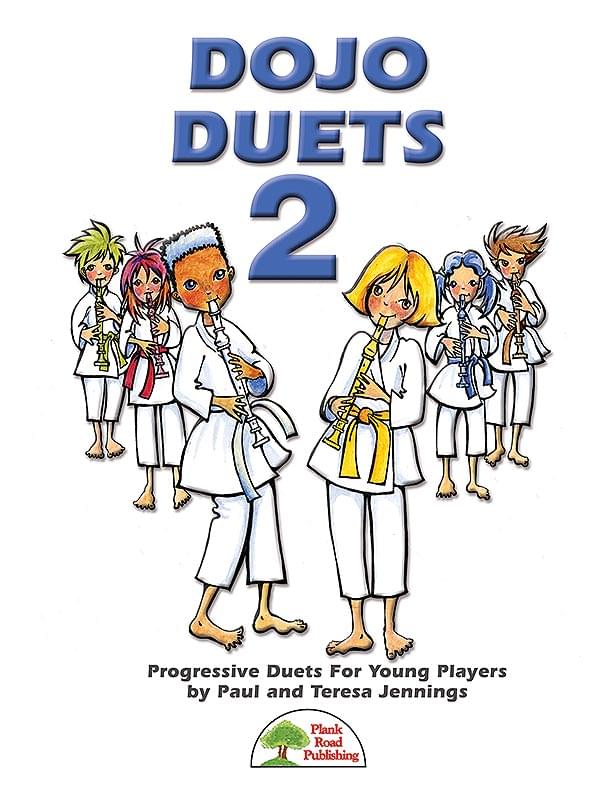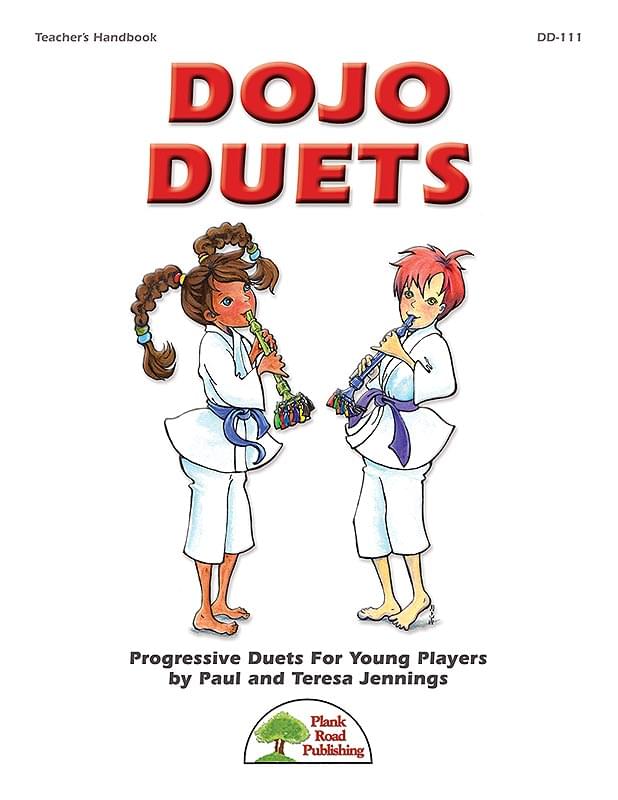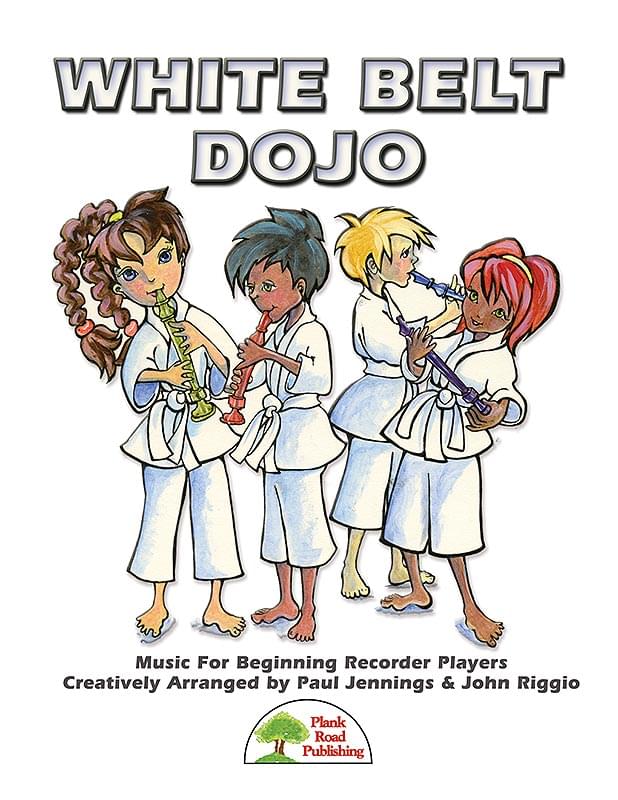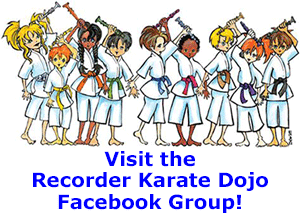Slow Recorder Learners
Submitted by Gretchen Taylor, Illinois
Idea posted 2003-04-07
I break down the learning of a new song to a step-by-step approach so that even those who are more challenged, can have a greater chance for success. On average, here's how I break a piece down:
1. Have them listen to it on the CD while they "recorder tap" the rhythm (tap their recorders lightly into the palm of their other hand to the notated rhythm). If there are any troubling spots, we'll isolate these apart from the CD and "recorder tap" again, perhaps slower.
2. They'll listen again and fingerplay (finger notes with the mouthpiece in the chin, not in the mouth). Sometimes I'll challenge them to also quietly say the note names while they do this. For more challenging pieces, I may have them "recorder tap" but just say the G's out loud, or G's and A's, whichever notes we're focusing on or that they may be struggling with. I'll even do this several times having them say one note name out loud, repeat, and add another note name, repeat with still another, until all the note names are covered. The notes they're not saying out loud are "tah'd" rhythmically.
3. Next, we'll try a play-through. Then, I'll ask to vote on which measure or phrase they believe is the easiest. Majority rules, and we'll play this part together. Then we'll vote on the next easiest, then the next, etc. until we've covered the whole thing piece by piece. Then we'll play through it again.
4. Also, for especially tricky measures or phrases, I may ask a strong player to be a "line" leader and come up front facing the class. I'll then invite four volunteers to stand side by side facing the leader. The leader's job is to challenge each player in line to play back the given phrase without error. So, he'll play the phrase first to player 1 who will simply echo it back. Then the leader plays it again to the 2nd player who echoes it back, and the playing continues down the line. Those who play it without error return to their seats, and new players take their spots. Those who made mistakes stay in the line. I'll usually choose a new leader for each round. So, the only way to get out of line is to play the phrase correctly. Kids not playing in line can fingerplay along until their turn in line.
Sometimes I'll do this same thing but as a 4 against 1 sparring match. Using a song with distinct phrases, the line leader will play phrase 1 to player 1 who plays phrase 2 back to the line leader who plays phrase 3 to player 2, and on to the end. It's like a zigzag effect with phrases being alternated between the leader and the line players. We don't stop for mistakes, but just keep the beat going. I'll often put my stronger players in the leader roles. I'll also make a big to-do if the leader plays all of his phrases with few or no mistakes. It's an exciting challenge for the kids and helps get the song learned well.
There are lots of other things I do to help the slower learners, but my challenge really is in keeping the faster learners' interest and enthusiasm up during the step-by-step learning approach. Several can simply sight read the songs quite well without having to go through the rhythm tapping, note naming, etc. I know that this process certainly won't hurt them, but it could become dull for them.
I've found, though, that keeping those notes in front of their eyes and building their reading responses is key. I've been warming my classes up this week by sticking actual note flash cards up on the board in various orders (C consecutively up to C, C ascending by 3rds, by 2nds and 3rds, or in random order). Then, we'll play each pitch on the ladder with a given rhythm value (first with 4 beats, then 2, then in quarter values). I used to do these ladders by just writing the letters on the board, but the flash cards give them yet another opportunity to "read" and finger the notes.
I also devised a fingering chart test on paper where I'll call out various note names and they'll have to color in the correct finger holes for that note along with drawing it on the staff. Anything to keep these notes and fingerings in front of them to help secure their playing response.









